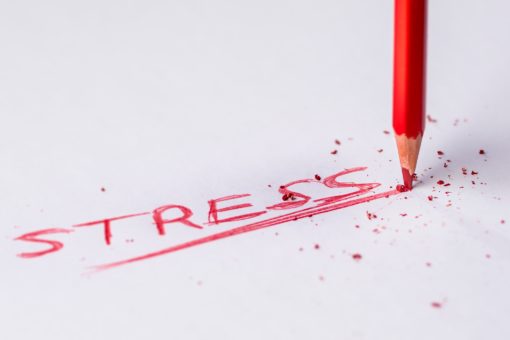
How to Control Stress
Collectively Stressed
As a college student, I am in one of the largest demographics for people experiencing high amounts of stress. Beyond the immediate consequences of stress, it can become a debilitating burden when treated improperly and misunderstood. Stress is uncontrollable in the sense that the body releases cortisol (the “stress” hormone) without receiving your permission. However, you can control whether you are “stressed out” or rather what your response is to the stressor.

Individually Burdened
I have only recently learned how to control my level of stress or how it affects me. I graduated high-school ranked 11 out of over 650, participated in clubs, dance team, national honor society and basically upheld every kind of commitment a high-school student could make. Currently, I have a 4.0 at Texas A&M University and participate in organizations and am initiated in a sorority.
I list these not to say that I above all others have the most reasons to stress, but to say that we are all stressed by a number of things in our own individual ways. We may not be stressed the same amount, but we equally have the opportunity to use our stress adaptively. In high-school, I did not understand this concept in the least bit. My struggle to fight stress lead to weakened immunity, and a generally high strung disposition. I’ve been on the bad side of this issue, and I’m here now to attest to the very real opportunity for you to escape that as well.

Solution
One of the most impactful ways I have learned to deal with stress is re-appraisal. I learned this specific technique in my intro psychology class and health courses but implemented it much before I could name it specifically. By practicing mindfulness, you consciously re-evaluate your body’s stress response as an adaptive mechanism for success, which it is. It is critical to understand that you can control your level of anxiety about stressors. If you believe you have no control, life is over as you know it, and everything is doomed, then it might as well be. Your response to stress is the key to accessing your body’s natural tendency toward success.

For example, if you get in a minor car accident, your body will most likely give you a load of epinephrine (adrenaline). You’ll experience all sorts of psychological and physiological effects. You may start shaking and your palms get clammy. Your body has given you the tools for fight or flight.
Now assuming you don’t get in a daily car accident, I’ll address a more common concern, returning to my demographic. Say you have an important test this week that will determine whether you pass your class. You misread the syllabus, and the test you assumed was 3 days away is in fact tomorrow. If you’re anything like the student I hope you are, you will naturally experience symptoms much like those mentioned in the car accident. It may not be to the degree but will be similar.
The maladaptive response may be to freak out, blame the teacher for not reminding you, and let the stress consume you into believing there’s nothing you can do about it at this point. However, an adaptive response would be to recognize that your body is giving you the energy to focus on studying and use it to make the most of the time you do have.

Worry and anxiety are options that you choose, not events that happen to you – speaking to the hormonally balanced person. Unless you have a disorder, your anxiety is being naturally caused by specific justifiable triggers whether that be a test or a car accident.
It is adaptive and useful when recognized properly. Fixation on things that we have no control over strips away the control we did have.
Rather than letting your mind be overcome with bad outcomes, when you next face a stressor, allow yourself to focus on what you can control, and then most importantly, take control of it. Turn your stress into success.

One thought